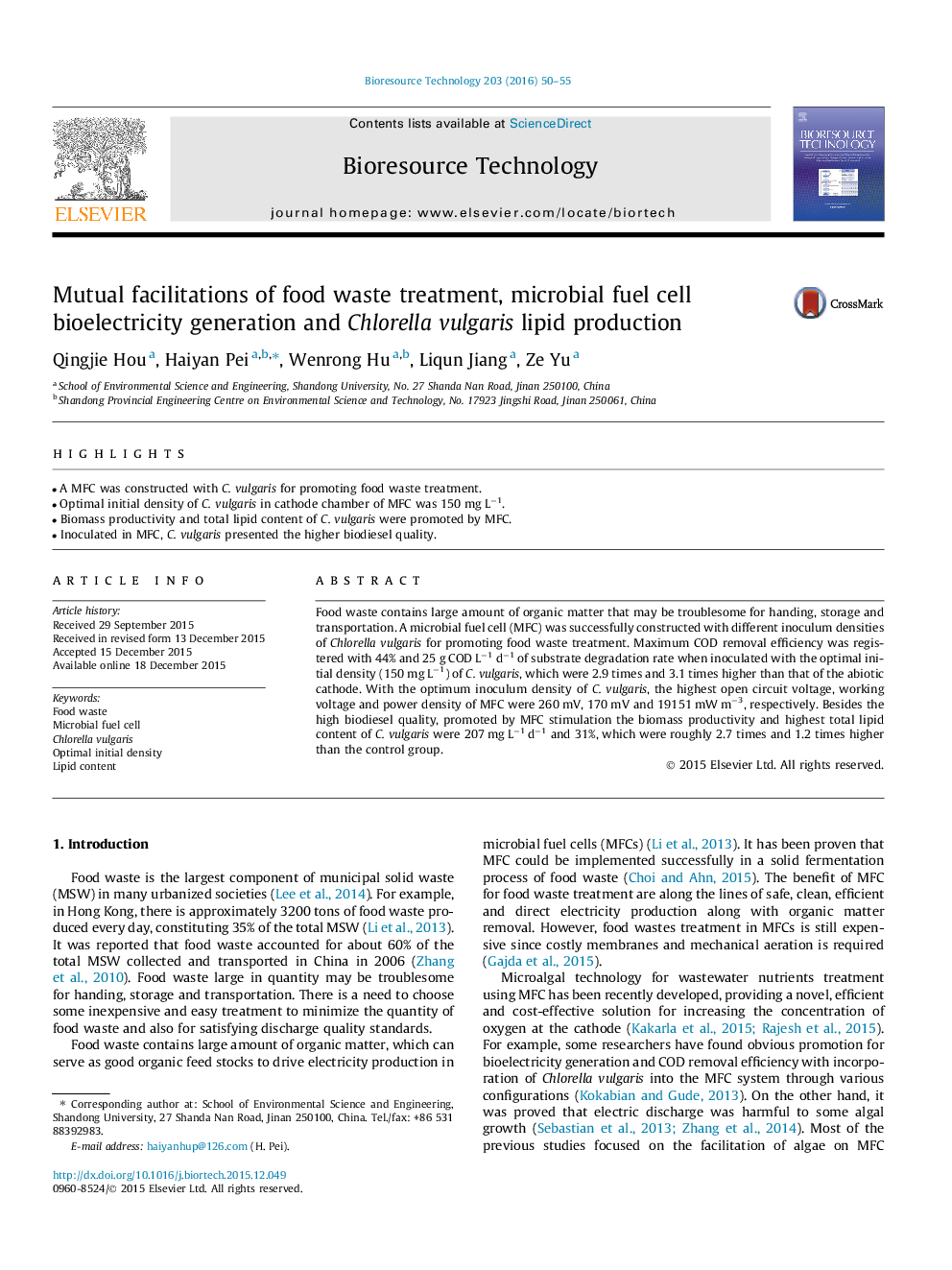| Article ID | Journal | Published Year | Pages | File Type |
|---|---|---|---|---|
| 7072402 | Bioresource Technology | 2016 | 6 Pages |
Abstract
Food waste contains large amount of organic matter that may be troublesome for handing, storage and transportation. A microbial fuel cell (MFC) was successfully constructed with different inoculum densities of Chlorella vulgaris for promoting food waste treatment. Maximum COD removal efficiency was registered with 44% and 25 g COD Lâ1 dâ1 of substrate degradation rate when inoculated with the optimal initial density (150 mg Lâ1) of C. vulgaris, which were 2.9 times and 3.1 times higher than that of the abiotic cathode. With the optimum inoculum density of C. vulgaris, the highest open circuit voltage, working voltage and power density of MFC were 260 mV, 170 mV and 19151 mW mâ3, respectively. Besides the high biodiesel quality, promoted by MFC stimulation the biomass productivity and highest total lipid content of C. vulgaris were 207 mg Lâ1 dâ1 and 31%, which were roughly 2.7 times and 1.2 times higher than the control group.
Related Topics
Physical Sciences and Engineering
Chemical Engineering
Process Chemistry and Technology
Authors
Qingjie Hou, Haiyan Pei, Wenrong Hu, Liqun Jiang, Ze Yu,
